Seeking Success Formula for Rio Games and Beyond
Published on January 26th, 2016
Sail Canada Executive Director Paddy Boyd provides this exclusive update as the Canadian Sailing Team prepares for the 2016 Olympic and Paralympic Games in Rio de Janeiro, Brazil…
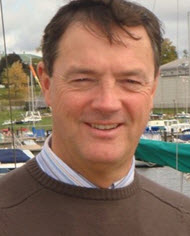 At the outset of the quad, focusing on a smaller number of classes was a more efficient and effective way to best use the very limited funds that are available to us. So we picked five Olympic events – Laser, Radial, Finn, 49er, and 49erFX – and one Paralympic event. We started out with the 2.4mR but then switched our focus to the Sonar as Paul Tingley moved from the singlehanded to the triplehanded event.
At the outset of the quad, focusing on a smaller number of classes was a more efficient and effective way to best use the very limited funds that are available to us. So we picked five Olympic events – Laser, Radial, Finn, 49er, and 49erFX – and one Paralympic event. We started out with the 2.4mR but then switched our focus to the Sonar as Paul Tingley moved from the singlehanded to the triplehanded event.
We are still supporting the other classes – there are a total of ten Olympic events and three Paralympic events – but not to the same dedicated extent as those we have selected.
In terms of qualifying Canada for the Games, we have earned entry in all three Paralympic events, and that team is pretty much sorted now. For the Olympics, Sailing World Cup Miami is the final country qualifier for North America. Canada is currently qualified in three classes and hope to qualify the country in three more classes by the end of the event.
However, country qualification is only one part of the process to get to Rio. For the first time, we have also put in a subjective qualification system, where it is not merely about scoring results but it also about potential.
What we are trying to do is create a situation where if the sailors are not podium material in Rio, but would benefit from having the 2016 Games experience for Tokyo in 2020, then there’s an opportunity for them to get selected now. But we are not looking to select people without either potential to podium in Rio or benefiting from the experience for future Games. This could mean we will have a smaller team in Rio than in the past.
As a result, we have now entered the phase where people have to put up performances, and if that doesn’t occur between now and Sailing World Cup Weymouth in June – our last selection regatta – then Canada might not enter certain events at the Rio Games.
We have seen in the past that we didn’t always send the best sailors to the Games as a result of quirks in the selection system. Perhaps injury, or an otherwise poor performance in a qualifying event, has kept possibly our best candidates from getting to the Games.
This new system allows us to use trends in performance rather than absolute performances to determine our team. Being the best right now might not be enough. If someone else is on an upward trajectory, and we feel they will ultimately be a better candidate, then they have the opportunity to earn the selection.
I am sure this system will cause angst and controversy, but as the selection body we recognize that we will be criticized either way, so we want the latitude to make these tough decisions that will offer Canada the best chance to succeed.
There will be a lot of racing between now and June, which includes the World Championships for the ten Olympic events. Our announcements on who is selected for Rio could occur at any time during that period. We want to make these decisions as early as is possible to allow the athletes to do any remaining fundraising and focused planning to best prepare themselves for the Games.
As we work toward Rio, we are also looking at how to improve for future Games. We hired a consultant to review our program and compare it to other leading nations. The main result from this assessment is that we need to be more focused, as both the program and its personnel are spread too thin.
This has been the result of our limited funding, with a committee now working to improve that component of our program. There will be some announcements coming soon, which will include new hires to provide support. The impact of these changes will better prepare us in the next quad for the 2020 Tokyo Games.
Comparisons with other programs is startling. The Brits have $40 million for the quad, the US is at $16 million, and we are at $4 million. The problem is that you need good performance results to increase funding, but we need to increase funding to get good performance results. It is a vicious cycle, and if you can’t break into it, it makes it difficult to build a program that can systematically produce high quality sailors.
In the next quad, we do anticipate a greater emphasis on youth sailing, and will look to improve the coaching and performance for young people before they fully commit to an Olympic program. We need to dedicate resources to improve the base of the program, and it is from that which we can then build upon. Being more competitive at the Youth Worlds is an important step, though it will likely require a narrow focus on only certain events to expedite the process.
For sure, the smaller countries that have been successful at the Olympics, the number of classes they work with is relatively small. That must be our path too.


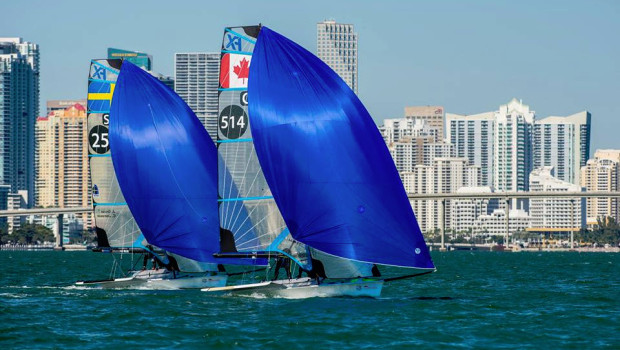


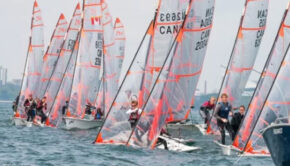

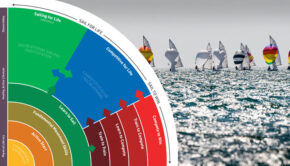
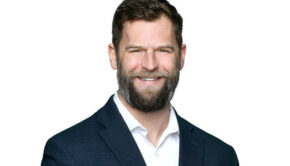
 We’ll keep your information safe.
We’ll keep your information safe.